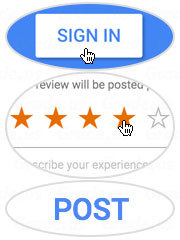Career Services Spotlight: Ivan Reynoso
Published - February 15, 2018
What is your role here at CBD College Career Services?
My role here at CBD College is a dual role. I’m both the Director of Students Affairs and Career Services. Both are very fun and important. My role as Director of Career Services is to ensure everything at the end of the student’s education cycle here at CBD is going efficiently, whether it’s part of their clinical experience (i.e., medical offices, large hospitals) or their placement. What we like to stress is as a graduate from CBD College, you have our services for life. If they would like to switch emphasis or mode of practice, they can always reach out to anyone in Career Services. As we get leads for entry level, we also get leads for years of experience. That’s a perfect point for us to reach out to our alumni.
How can Career Services help me with my job and internship search?
If you’re a student and need a “survival job,” we can assist with linking you with part-time employment. When it comes to the clinical and externship experience, each student really needs to work with their clinical coordinator within their individual program. They’re the subject matter experts. We do try to match students with a site that’s close to home, depending on availability.
What are the basic characteristics that employers are looking for from someone who just graduated?
Passion and drive, at the end of the day, are what will lead any student or graduate to employment. Any employer that reaches out to us knows that any resumes they receive from us will be for an entry-level position, one that comes with no or very little medical experience. Whatever you put forward is what you’re going to receive. We can help you, but we also need to make sure the effort is reciprocated.
What should I start doing today to land the dream job tomorrow?
Your clinical and externship experience should be treated as if you’re a full-time employee. They might hire you right off of externship, and if not, your supervisor could write a great reference letter for you regarding your skills. Make a direct impact with that direct supervisor and make sure they know your strengths. They can become a professional reference for you. You can (and should) have those reference letters in-hand at your interviews.
Make sure, as well, if you’re not comfortable in an interview setting, to come prepared to mock interviews, which is part of the Career Edge program here at CBD College, and familiarize yourself with the Career Edge modules. We’ll set up a mock interview that you have less interaction with for a more realistic “interview.” Be aware of how you’re presenting yourself and branding yourself. If that in-person interview turns into a working interview, and they want to test you in an exam room or OR on a mock patient, are you able to switch to that very quickly and not get flustered by it?
Know the skill set you bring to the table, from the textbook to anything you practice in the field. You know how to do what you need to do. They’re not expecting a 5 year veteran of the medical field, simply someone who can show that they’re passionate enough to grow, adapt, and be a better clinician.
What excites you about helping CBD College Students get placed?
The most exciting time for me is Graduation. Many times a graduate will start working in the field and we won’t hear from them for a while, so it’s always nice to see how successful they’ve been, the strides they’ve taken, and how proud their support system is of them – parents, spouses, children. It’s seeing that anything in life is achievable whether you’re straight out of high school, after a traditional degree, or later on in life. It’s never too late to educate yourself and be passionate about what you want to do.
Do you have any advice for potential students interested in pursuing a career in the healthcare industry?
My only advice would be to know where you want to be at the end of the day. Do your research before you pick your path. Look at the program and your interests within the program, and understand what the outcomes lead to: salary, job satisfaction, relocating. This is the first step.



